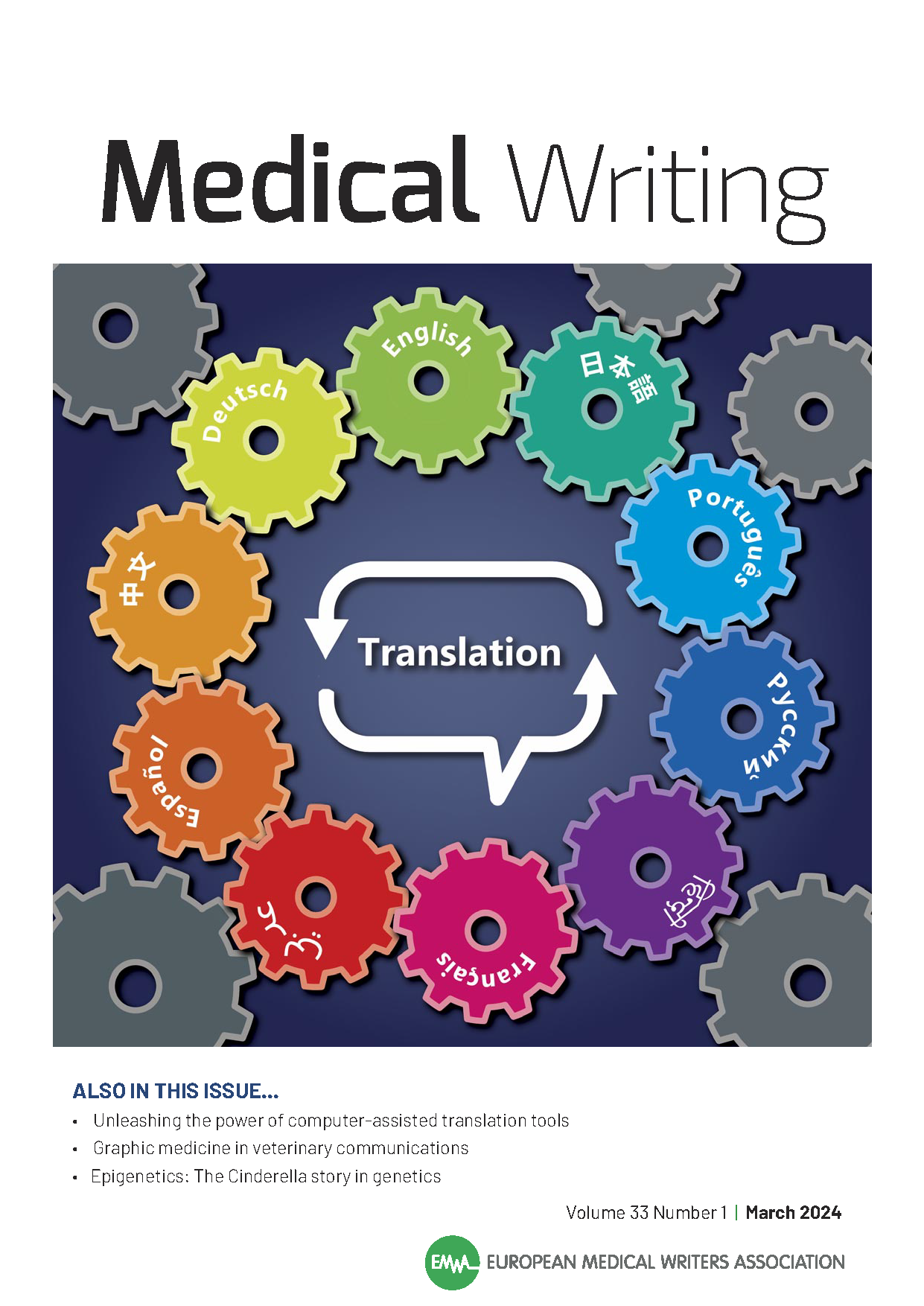
Volume 33, Issue 1 - Translation
Harmonising linguistic validation with AI: Precision, efficiency, and the human touch in patient-reported outcome translation
Author: Helen Williams
Abstract
The surge in artificial intelligence (AI) prompts a reassessment of linguistic validation methods for patient-reported outcome (PRO) measures. The robust linguistic process, designed to adapt PRO measures for different cultures and languages, is upheld by regulators and the outcomes research community for its value in maintaining concept equivalence across global trial data. Its methods are entrenched in human translation and review, making it more challenging to integrate AI (machine learning, deep learning, natural language processing) compared to other parts of the global localisation industry. This article provides an overview of the key challenges in integrating linguistic validation and AI. Despite these hurdles, it advocates for the industry to embrace the potential benefits through collaborative and responsible innovation.
Medical Writing. 2024;33(1):66–69. https://doi.org/10.56012/lxmw9690
 Download the full article
Download the full article
Search
Articles
Links
Editoral Board
Editor-in-Chief
Co-Editors
Senior Editor
Victoria White
Managing Editor
Alicia Brooks Waltman
Associate Editors
Section Editors
AI/Automation
Biotechnology
Digital Communication
EMWA News
Freelancing
Gained in Translation
Getting Your Foot in the Door
Good Writing Practice
Pablo Izquierdo / Alison McIntosh
In the Bookstores
Publications
Medical Communications/Writing for Patients
Medical Devices
My First Medical Writing
News from the EMA
Pharmacovigilance
Regulatory Matters
Regulatory Public Disclosure
Louisa Ludwig-Begall / Sarah Kabani
The Crofter: Sustainable Communications
Veterinary Writing
Editors Emeritus
Layout Designer
Chris Monk
 Visit the EMWA website
Visit the EMWA website